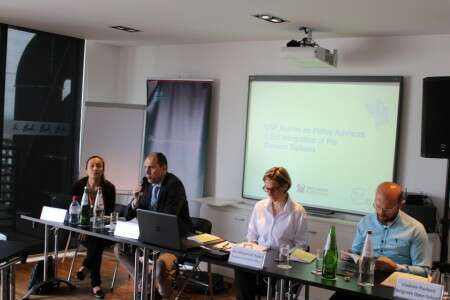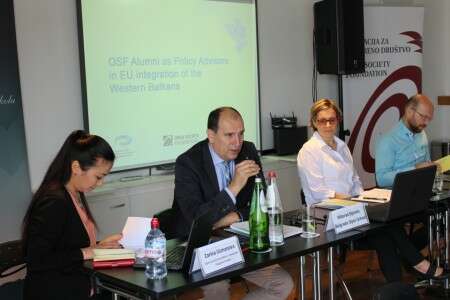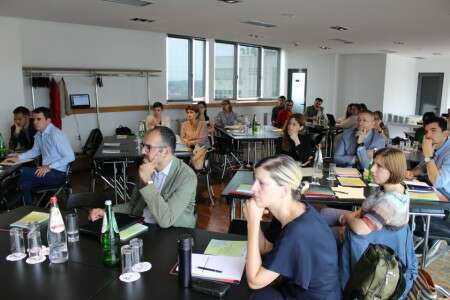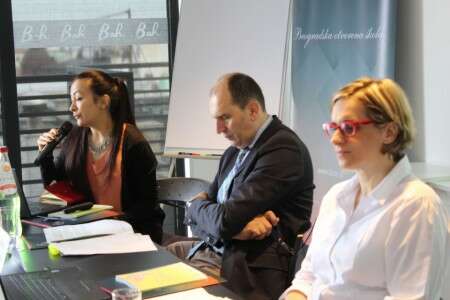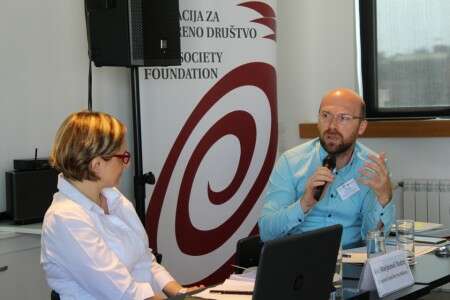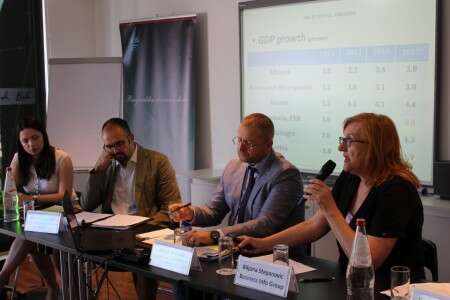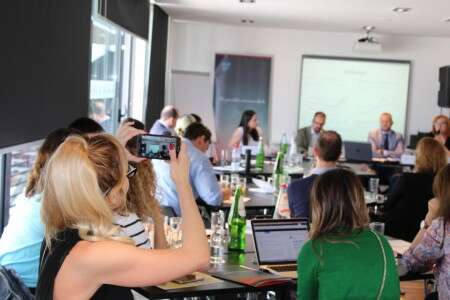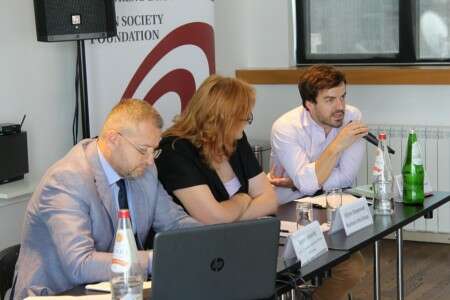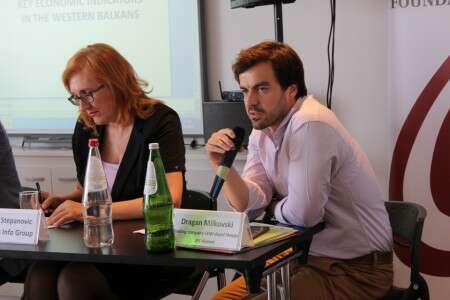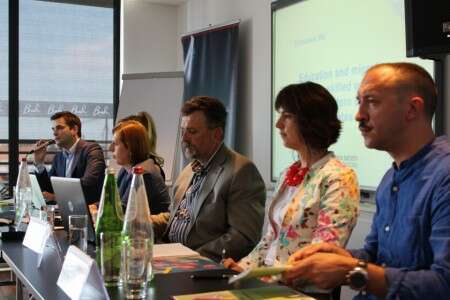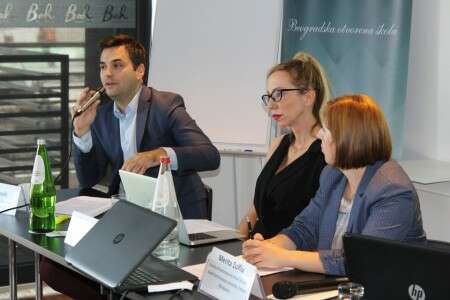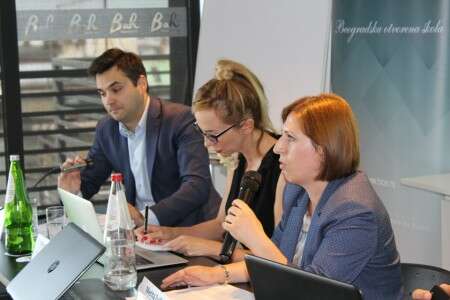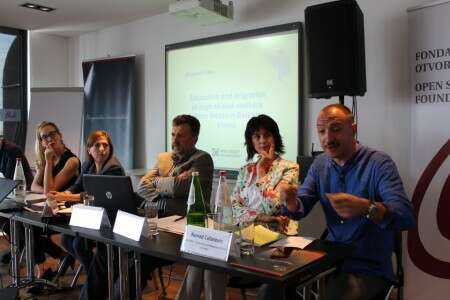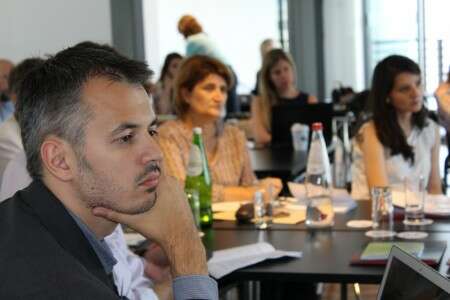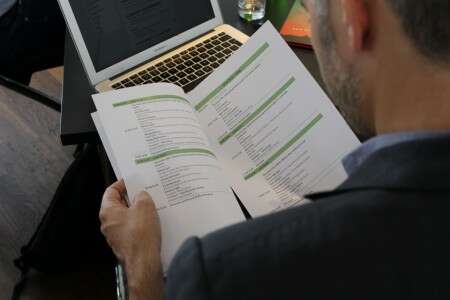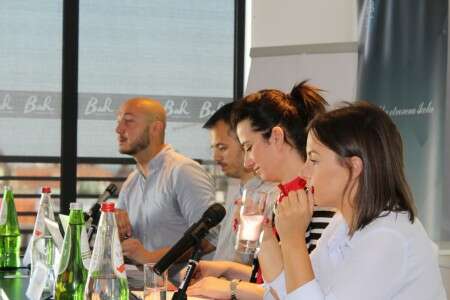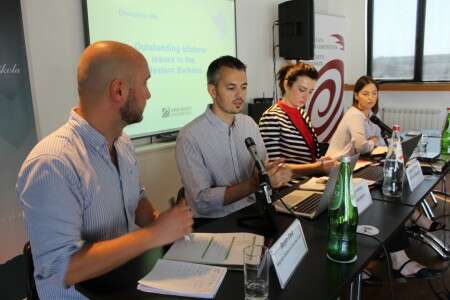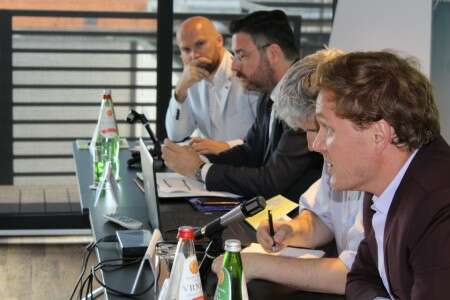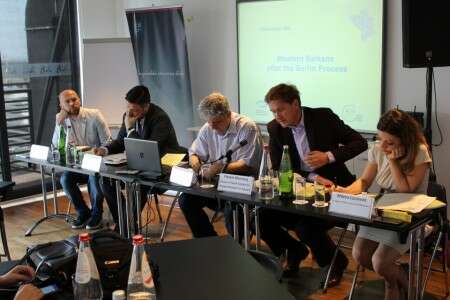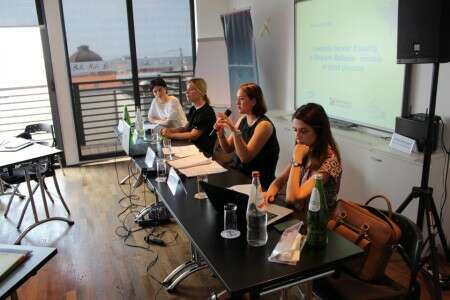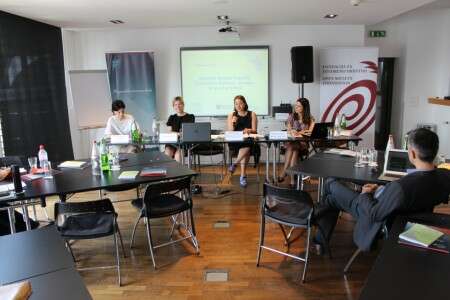On the 7th and 8th of June 2018, in Belgrade, an Open Society Foundations’ Alumni regional conference named “OSF Alumni as Policy Advisors in the European integration of the Western Balkans” took place.
The aim of this regional event was to present policy briefs produced by eight OSF alumni from Western Balkans, with the mentor support from Belgrade Open School. Topics of policy briefs were related to those discussed in the framework of the Berlin Process and fields which will be discussed within the London Summit (scheduled for 10 July 2018).
The conference gathered participants from Serbia, Bosnia and Herzegovina, Albania, Macedonia and Kosovo* who are alumni of the Open Society Foundations Scholarship Programs, experts from different fields, representatives of civil society organizations, international organizations, public institutions etc. At the opening of the conference, participants were addressed by the executive director of Belgrade Open School Milorad Bjeletic, Zarina Usmanova from Open Society Foundations Scholarship Programs in London, Ana Marjanovic Rudan from European Fund for the Balkans and Vladimir Pavlovic, policy coordinator from BOS. In her opening statement, Ms Usmanova stressed that the OSF Scholarship Programs will continue to support scholars from Western Balkans in the form of Civil Society Scholarshop Award. She also emphasized how important is for the alumni to stay connected with local Educational Advising Centres with the aim of being informed about different activities of OSF. Mr Bjeletic has provided more information on the cooperation of BOS and OSF on scholarship programs, thanks to which more than 300 students received the opportunity to expand their knowledge on some of the most prestigious universities in the US and Europe. Zarina Usmanova also pointed out that one of the biggest problems research community in Western Balkans faces is data availability and the lack of opportunity to use archives of European universities.
Having in mind that OSF alumni tackled the topic which will discussed during London Summit, Ana Marjanovic Rudan from European Fund for the Balkans gave insights about the founding process of the Berlin Process, its development and preparation of the London Summit.
After the introductory remarks, over the course of two days of the conference eight policy briefs were presented through panel discussions. The panels were also attended by representatives of CSOs, journalists, researchers who are experts in topics discussed.
Policy briefs were presented trough four panel discussions: Economic Challenges in the WB-Integration, Investment, Infrastructure; Education and Migration of High Skilled Workers from Western Balkan States; Towards Gender Equality in Western Balkans-models of good practice; Decentralized Urban Government Models for Sustainable Development.
Presented policy briefs:
- Investment reform agenda in Western Balkans: taking stock and looking forward - Besnik Krasniqi
- Substantial focused investments needed for Western Balkans development - Boris Majstorovic
- Return of high skilled migrants to Macedonia and absorption of the transferred knowledge - Merita Zulfiu
- Decentralization of urban governance models in post-socialist Albania - Denada Veizaj
- One stop border posts for faster EU integration of the Western Balkan Countries – Dragan Milkovski
- Research and development policy in the Western Balkans region: a myth or reality? - Nina Brankovic
- Toward a school curriculum history textbook and reform dedicated to educate more tolerant students
- Gender equality as the horizontal catalyser of regional cooperation in the Balkans- Milana Lazic
Conference also included a discussion on outstanding bilateral issues on the Western Balkans and a discussion concerning the future of Western Balkans after Berlin Process.
Within the discussion concerning outstanding bilateral disputes, speakers: Jovana Marovic from Politikon network, Agon Maliqi from portal Sbunker, Bojan Elek from Belgrade Centre for Security Policy and Jovana Radosavljevic from New Social Initiative addressed current issues between Serbia and Kosovo as well as Macedonia and Greece and how these disputes affect the lives of ordinary citizens.
Speakers in the discussion dedicated to the future of the WB region after the Belin Process were Florent Marciacq from Austro-French Centre for Rapprochement in Europe, Aleksandar Kovacevic from Oxford Institute for Energy Studies, Pavle Jankovic from Ministry of Foreign Affairs of the Republic of Serbia and Milena Lazarevic from Centre for European Policy. Speakers gave short explanation of the Berlin Process its achievement and acquainted the auditorium with the fact that Berlin Process is going to be continued and that the next summit is going to be held in Warsaw 2019. They all agreed that the Berlin Process is just one of the tools for improvement of regional cooperation but that the biggest burden of change is on Western Balkan countries.


